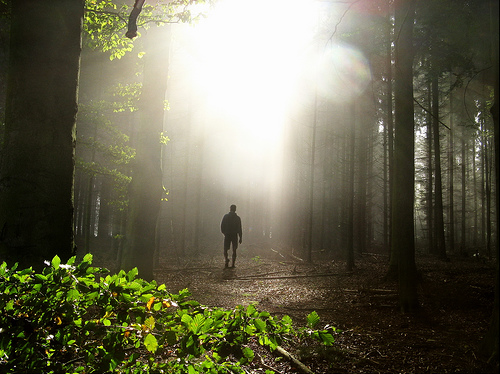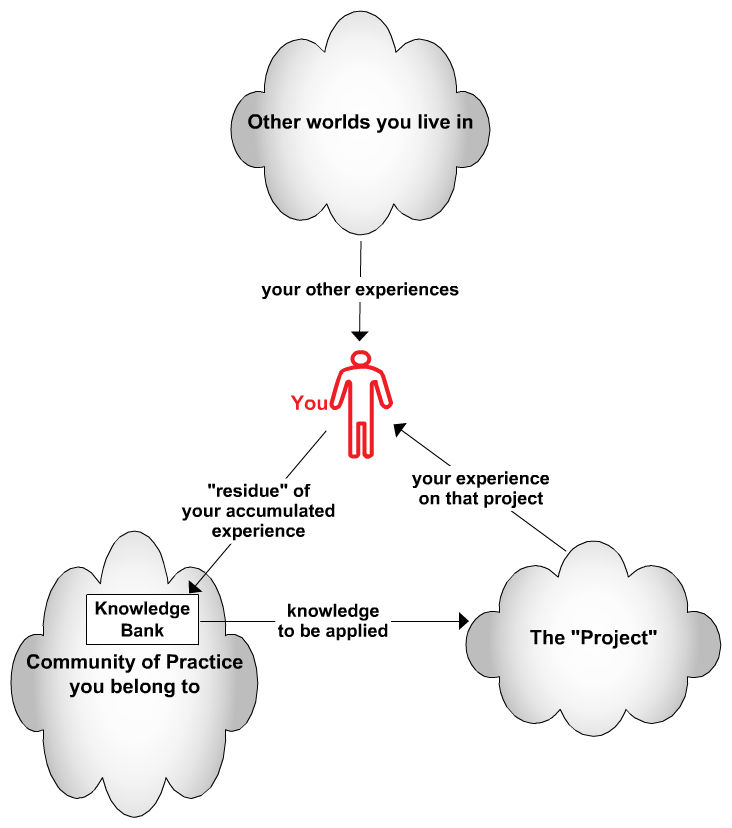 How does your organization or collaborative learn from experience? How do you take the knowledge of your experts, make it available to those who need it, and create value in the process? Communities of Practice provide a great way to do this.
How does your organization or collaborative learn from experience? How do you take the knowledge of your experts, make it available to those who need it, and create value in the process? Communities of Practice provide a great way to do this.
Those communities are defined by Etienne Wenger, Richard McDermott, and William Snynder in Cultivating Communities of Practice as groups of people who share a concern, a set of problems, or a passion about a topic, and who deepen their knowledge and expertise in this area by interacting on an ongoing basis. They also define the knowledge of experts “as an accumulation of experience a kind of residue of their actions, thinking, and conversations.
Here’s my image of the relationship between communities of practice and knowledge:

Communities of Practice provide an opportunity:
- for building your knowledge equity (bank); e.g., through systematic deposits
- to offset the impact of organizational change by assigning (ongoing) responsibility to community members for maintaining the knowledge
- to strengthen relationships, through the organization and beyond
- to leverage ICT techniques and tools; e.g., social media
- to systematically update knowledge, thereby treating it as the living asset; it should be
I compare knowledge (in a community of practice) to a tree in that:
- The residue of accumulated experience (knowledge) tells a story, as do the rings of growth on a tree
- Both have their own rhythm; the systematic updating of knowledge bases, and the annual cycle of growth associated with a tree
- The greater the residue/size, the stronger the body
- There is as much below the surface as above; equating with richness of experience/being
- Both provide nurturing environments; the knowledge base to user communities, the tree to other plants and wildlife
How do you think of knowledge? What positive way does your organization provide for growing knowledge?
If you enjoyed this post, please consider leaving a comment or subscribing to the feed to have future articles delivered to your feed reader.
Photo credit: h.koppdelaney

[…] provides a residue of accumulated experience, i.e., knowledge resource (thinking of my post on knowledge & communities of practice). Wow what a resource this […]